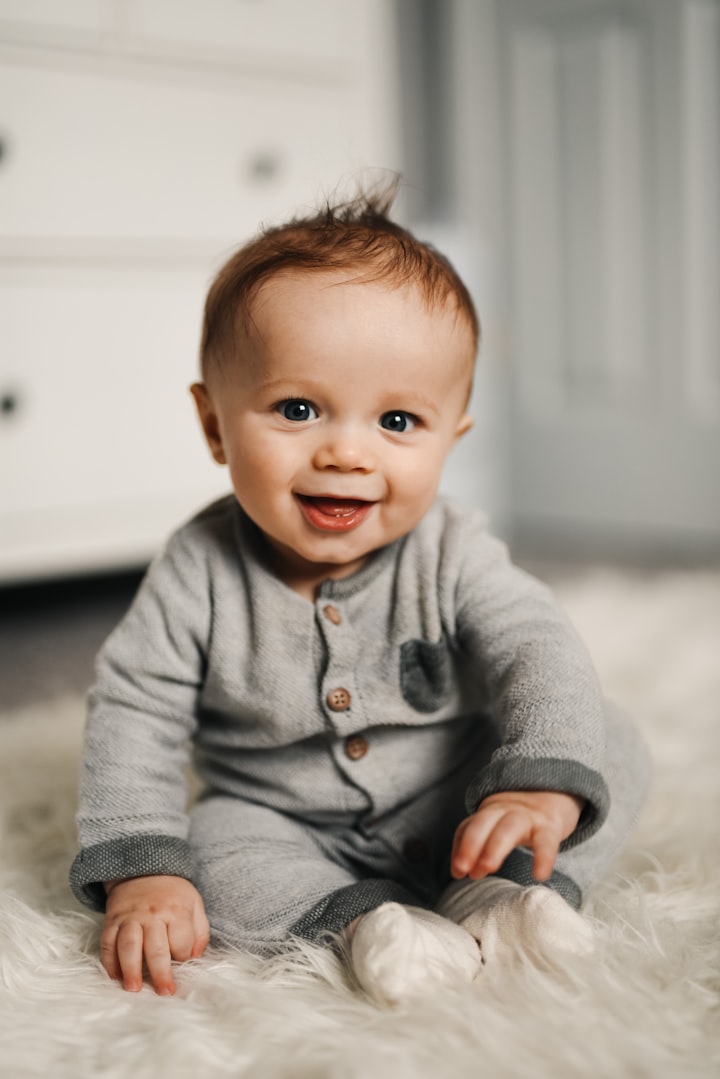Ten Things I Loved About My Husband's Damaged and Difficult Mother
The people it's hardest to love can be the ones best able to show you how

The first thing you should know about my mother-in-law Helen is that she was a battered child. I don't know if this is something anyone can completely overcome, but I know she tried like hell. Trust is essential to building relationships, and Helen found it hard to trust anybody.
Helen's mother, Ethel, was mentally ill and inexplicably filled with rage. She took this rage out on her little girl. When the person you instinctively go to to make things better makes everything worse, it's hard to recognize a safe place to land.
The one bright spot in Helen's life was her mother's mother, Laurene, who provided her with what love and protection she could, taking Helen to stay with her when things got bad. Rex, Helen's father, did not mistreat her, but he didn't protect her from Ethel, either.
When the U.S. Army asked Rex to work on classified projects in Hawaii during World War II, he left 12-year-old Helen in the not-so-tender care of her mother. Helen was growing into a beautiful woman like her father's sisters, and average-looking Ethel resented it. She'd beat Helen and scream that she hated her because she was pretty.
Helen recounted to me how her father tried to make up for his absence by sending her expensive gifts like a record player, something none of her classmates in the Carondelet neighborhood of St. Louis could afford. She didn't care about presents; she wanted to escape her mother, as he had.
When she was in high school, Helen met her future husband, Jess, at a dance. When her father returned from Hawaii and saw that Jess would be a good husband to her, he gave his written consent to allow her to marry at 16. Rex forced Ethel to sign, too.
Helen once told me she would have married anyone to get away from her mother. As it turned out, Jess and she were an ideal match, and they adored each other. At last, she had found someone she could trust to love, protect, and care for her, no matter what.
She and Jess had two sons upon whom Helen lavished love and attention, but life wasn't always rosy. Although never formally diagnosed, Helen, like her mother before her, suffered from some form of mental illness. Luckily it was not so severe and chiefly manifested itself in periods of clinical depression.
It's difficult to say which negative aspects of Helen's personality were due to her inherited mental illness and which were a product of the treatment she received at the hands of her mother. She was vain, petty, opinionated, domineering, blunt to the point of insult, not a very good citizen, and not entirely honest in business dealings.
If she felt someone was a threat to her or a member of her immediate family, she could be vicious. She once bragged about meeting a man she considered to be one of Jess's enemies at work and telling him, "I hear you have cancer. I hope it kills you."
When Jess died after a long and challenging illness, Helen had cared for him at home and was in bad shape. Profoundly depressed and dangerously underweight, it looked as if she might die, too. My husband and I convinced her to move in with our young son and us. It was the right thing to do.
Helen lived with us for five years until her death. Often, it felt like a case of "no good deed goes unpunished," but other times, it felt like one of the best decisions we ever made. Here are ten things I loved about Helen despite everything else:
1. She was unfailingly loyal
Helen never put anyone or anything before her devotion to her family. Once she laid claim to you, she had your back. She would never take anyone else's side against you. If she sensed someone was messing with you, she'd jump right in and mess with them back. I always had a champion in Helen.
2. She stood by her man
After Helen and Jess got married, he went to college on the GI bill, earned his Ph.D., and got a job teaching at what is now the University of Detroit Mercy, a Catholic college. Things were going great for them. They owned their own home, had two healthy toddlers, and a respected place in the community.
But suddenly, everything fell apart. Jess wrote novels in his spare time, three of which were quite successful. He was up for English department chair, a position coveted by one of the other professors, a teaching nun.
This woman set out to remove Jess from the competition by charging that his novels contained obscene content, not in keeping with the values of a Catholic institution. The books are tame by today's standards but in the late 1950s, many people objected to the depiction of things like pre-marital sex, sex between people of different races, and polygamy in books or movies.
Not only did this rival candidate for department chair bring Jess up on charges with the college administration, but she also wrote a press release about it and sent it to the local papers. Headlines referring to Jess as a "dirty book professor" began appearing on a regular basis.
The accompanying stories included his home address and the names and ages of his children. It wasn't long before the family began receiving menacing phone calls from "right-minded" members of the public.
In the end, Jess lost his job, merchants repossessed their furniture (bought on time), and the bank foreclosed upon their house. The circumstances of his firing made it impossible for Jess to get another teaching job in the United States.
The family sold most of their remaining possessions, bought a trailer, and lived on the road in Mexico where their meager savings and Jess's royalty income would go further.
About a year or so later, Jess heard that the president of Nigeria was building a university at Nsukke and was recruiting British and American professors. He hired Jess.
Helen, who had never been anywhere beyond the Midwestern United States, cheerfully got on a plane with her husband and their two boys in tow for what would be the adventure of a lifetime. I once asked her if she was terrified, and she said that she didn't know enough to be but that she had absolute faith in Jess. She was willing to follow him anywhere, and she did.
3. She loved animals
Helen loved animals, but she didn't have pets growing up. Her father's hunting dogs were only let inside the house on cold winter nights and she wasn't allowed to play with them. They were strictly working dogs.
After she married Jess, they got a pair of Irish Setters. When they were in Mexico, they adopted a coatimundi, which they took with them to Africa. In Nigeria, the family acquired an African Grey parrot and a green monkey.
When they returned to the United States, they were only able to bring the parrot. Still, they soon acquired other pets including another bird, a rabbit, an Airedale terrier, and a woolly monkey named Macho. The monkey wore diapers, and Helen made kim an adorable pair of jeans and a dashiki. Later in life, she doted on her chihuahua Daisy.
4. She was kind to people in trouble
When Helen was in Africa, she befriended another American woman who was married to an abusive Nigerian husband. She convinced Jess to help her escape from him and go home to America where her friend could get a divorce. They remained life-long friends.
When her sons were teenagers, Helen welcomed their friends who were having problems at home. She cooked for them, washed their clothes, gave them a place to stay, and sometimes even a little money.
5. She was generous
Helen's insecurity made her crave the demonstration of affection in the form of gifts. This may have been a throwback to her relationship with her father.
I used to get annoyed early in our marriage because my husband always insisted on expensive gifts for his mother. I didn't buy things like that for my mother because she didn't have that emotional hole to fill, and she wouldn't have liked me spending a lot of money on her. She also had five children to give her gifts while Helen only had two.
The upside to Helen's attitude toward gift-giving, though, is that she gave as good as she got, or better. She was a world-class QVC shopper and she showered us with gifts. They weren't always things we wanted, but I came to understand that this was her way of showing love. It was also a form of recreation for her.
She got a kick out of the fact that she was featured on-air numerous times. Her buying was borderline shopaholic, but, as Helen pointed out, she stayed within budget. Essentially homebound, this was how she shopped.
6. She made beautiful things
During the 1970s, Helen made and sold jewelry that appealed to college students of the hippie era: tumbled rocks on chains and seed bead necklaces and the like. She was also was very skilled at crochet and made numerous quilts, scarves, and other things. I still have two of the shawls she made me.
7. She introduced me to mystery novels
I learned to love reading at an early age, but I didn't have a lot of time to do it when my son was young. When I read, it was usually biographies and autobiographies of people in the theater, film, and television industries.
Helen read a lot, sometimes three or four books a week. These were mainly mysteries. My mother loved the same genre, but I never thought to read books like that until Helen began to tell me about some of the ones she liked. I went to the library frequently for her. Her appetite for mysteries was insatiable.
After she died, I began reading some of the authors she liked, and I got hooked. Now I'm the one with the insatiable appetite for mysteries, and I couldn't be happier about it.
8. She had a mind like a steel trap
Helen didn't forget anything. I'll admit, this was not always a good thing, but it proved invaluable to me because I was compiling my son's family history. Soon after he was born, I realized that by the time he or his children became interested in our family story, there might not be anyone around who could tell it to them.
I wouldn't have a tenth of what I have down in my Ancestry account without Helen's recollections. With them, I was able to contact relatives and obtain copies of precious photos, obtain documents and news clippings, and hear stories of the past from an eyewitness. Priceless!
9. She gave my son a wonderful grandchild experience
My son was too young when they died to remember much of anything about his other three grandparents. By inviting Helen to live with us, he had the opportunity to get to know and develop a close bond with her. She adored him.
Not only did they both benefit from the grandparent/grandchild relationship, but my son learned valuable lessons about empathy, tolerance, and compassion. He's a good man, and Helen had something to do with that.
10. She made me a better person
It's easy to be kind to people who are always kind to you. It takes no effort to love someone to whom love comes naturally. I sacrificed a lot to do right by her. When my friends heard that she was coming to live with us, they warned me that she'd be a negative presence in our lives. They weren't entirely wrong about that, but we managed.
My husband and I gave her the master bedroom because she was home all day, and it afforded her a bit more dignity. Helen was very particular about certain things, and it was easier to buy her favorite brands at the grocery store than to have to get different ones for the rest of the family. If we hadn't taken her in, my husband and I might have had another child. It's a bit sad thinking about that.
If I had had to choose one of our parents to take care of at the end of their lives, she would have been my last choice. The other three had high self-esteem and were self-assured. They were the least demanding people you could imagine.
Any one of them would have been easier to live with than Helen. She was the only one who smoked and did so, near the end, on oxygen, risking all our lives. After she died, though, I realized that she was the only one of them who needed us.
Her husband Jess died in her arms, my mother was in a coma for months before she passed, and my father had Alzheimer's. In contrast to her brutal beginning, Helen's life ended with love and compassion. She didn't die alone, and she knew we cared. You can't ask for better than that.
About the Creator
Denise Shelton
Denise Shelton writes on a variety of topics and in several different genres. Frequent subjects include history, politics, and opinion. She gleefully writes poetry The New Yorker wouldn't dare publish.






Comments
There are no comments for this story
Be the first to respond and start the conversation.